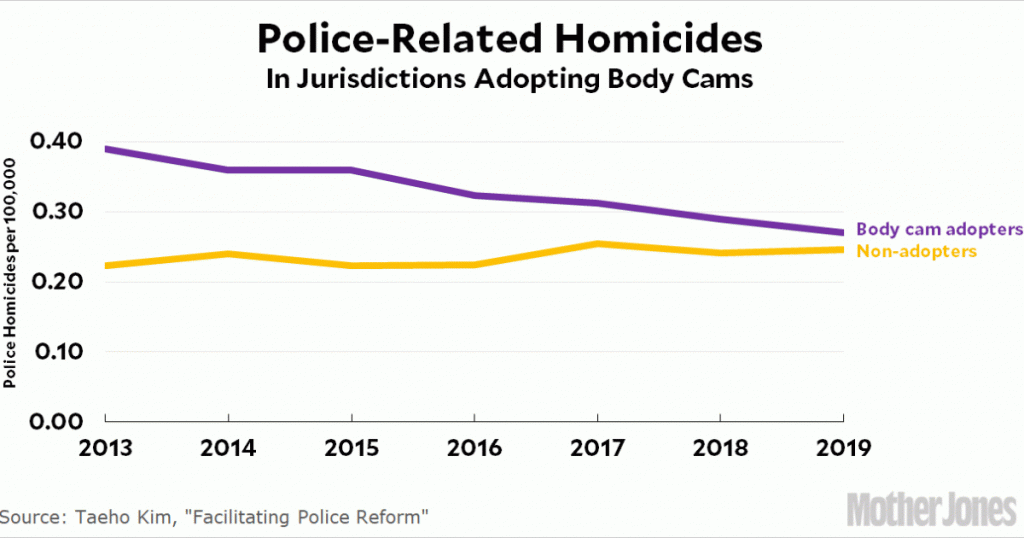New Study Suggests Body Cams Save Lots of Black and Hispanic Lives
Here’s an interesting chart:
This chart comes from a new paper by Taeho Kim of the University of Chicago, who investigated the rate of police-related homicides in cities that adopted body cams vs. those that didn’t. There are, of course, lots of things going on that could mess up these results, so Kim used an experimental design that depended on “idiosyncratic variation in adoption timing that is attributable to administrative hurdles.” This provides a fairly random way of creating a treatment group vs. a control group.
As you can see, agencies that adopted body cams saw a substantial reduction in police homicides: from 0.39 per 100,000 in 2013 to 0.27 in 2019. By contrast, agencies that didn’t adopt body cams showed no change.
And there’s more: virtually all of the decline in police homicides was due to reductions in killings of Black and Hispanic suspects. Nor was anything else affected. Arrests stayed at their previous levels, suggesting that body cams didn’t reduce policing effort. Kim also found that public opinion toward the police improved in jurisdictions that adopted body cams. On a purely monetary basis, Kim estimates that adoption of body cams is a big cost-benefit winner simply by reducing payouts from lawsuits over excessive use of force.
This is a very tricky bit of research, since there are lots of reasons that police homicides might go down in some areas and not in others. Nonetheless, by comparing lots of different agencies instead of changes in a single agency, Kim has advanced what we know about body cams.





